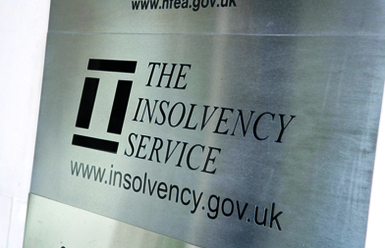New legislation targets unfit directors of dissolved companies
The Insolvency Service will soon be given powers to investigate directors of limited companies that have been dissolved, in order to determine whether the dissolution was fraudulent, or to avoid the repayment of debt.
The Ratings (Coronavirus) and Directors Disqualification (Dissolved Companies) Bill has had its second reading and is likely to become law later this year. The introduction of these new rules come after the UK government provided various support schemes to help businesses trade through economic uncertainty as a result of Covid-19.
As it stands, company directors can side-step an investigation into their actions by striking off a company, rather than proceeding with a formal insolvency process such as liquidation. This loophole currently prevents The Insolvency Service from conducting enquiries into company failures, because only active companies or those in a formal insolvency process can be subject to investigation for fraudulent activity or other wrongdoing.
Options for closing your company
There are two ways of formally closing a limited company, which is no longer viable and must cease trading. These are dissolution (also referred to as striking-off) and liquidation.
Dissolution
Dissolution is not a formal insolvency process. It is only an appropriate course of action in certain circumstances, for example if the company is dormant, or perhaps the directors wish to retire and therefore the company has reached the end of its useful life.
Dissolution should never be viewed as an alternative to formal insolvency proceedings, if appropriate, for example if a company cannot pay its debts as they fall due. Before applying for a company to be struck off notice must be given to creditors, employees and shareholders and any other organisation which might have an interest, such as HMRC.
If the correct procedure is not followed it is likely that the proposed action will be objected to. Even if the company is successfully struck off and dissolved, the creditors and others could apply for the company to be restored to the register.
Liquidation
Liquidation is a formal insolvency process and can be entered on a compulsory, or voluntary basis. It is often appropriate for a company which has unpaid liabilities, and no prospect of financial recovery. It also ensures that all unpaid liabilities are treated fairly, and an orderly closure of the business is managed by a Licensed Insolvency Practitioner.
Following liquidation, a director who is found guilty of misconduct can face penalties such as being made liable for company debts, or face disqualification from acting as a director of a limited company for up to 15 years.
For any company facing financial difficulty it is key that directors take early advice, to ensure compliance with their obligations and minimise the risk of personal liability arising as a result.
Where a company does have a viable future, despite temporary challenges, there are a range of rescue procedures to be considered if the directors believe that recovery is possible, and wish to continue trading.
What will change in the future?
Once The Ratings (Coronavirus) and Directors Disqualification (Dissolved Companies) Bill has passed parliament and receives Royal Assent it will no longer be possible to evade liability by using the dissolution process. If a company is closed by dissolution, The Insolvency Service will have the power to investigate the conduct of the directors and impose sanctions as it sees fit.
Most importantly, the new law will apply retrospectively. This means that The Insolvency Service will be able to review past cases, particularly those where a dissolved company failed to repay sums owing in respect of Bounce Back Loan.
Business Secretary, Kwasi Kwarteng said: “As we build back better from the pandemic, we need to restore business confidence, but also people’s confidence in business – which is why we will not hesitate to disqualify directors who deliberately leave employees and the British taxpayer out of pocket… those who have previously been able to avoid their responsibilities will be held to account.”
What can you do if your company is facing closure?
If your business is struggling and you are considering your options, you should seek advice from an Insolvency Practitioner as soon as possible. The quicker you act the more options are likely to be available, and the better chance you stand of avoiding an allegation of misconduct.
Keywood Group is a Licenced Insolvency Practice and our team has extensive experience in advising business on their options, and dealing with company closure. Our friendly team will work with you to assess the options available and provide transparent advice about the implications of each option.
If you want further information, please contact us for a no obligation chat.











